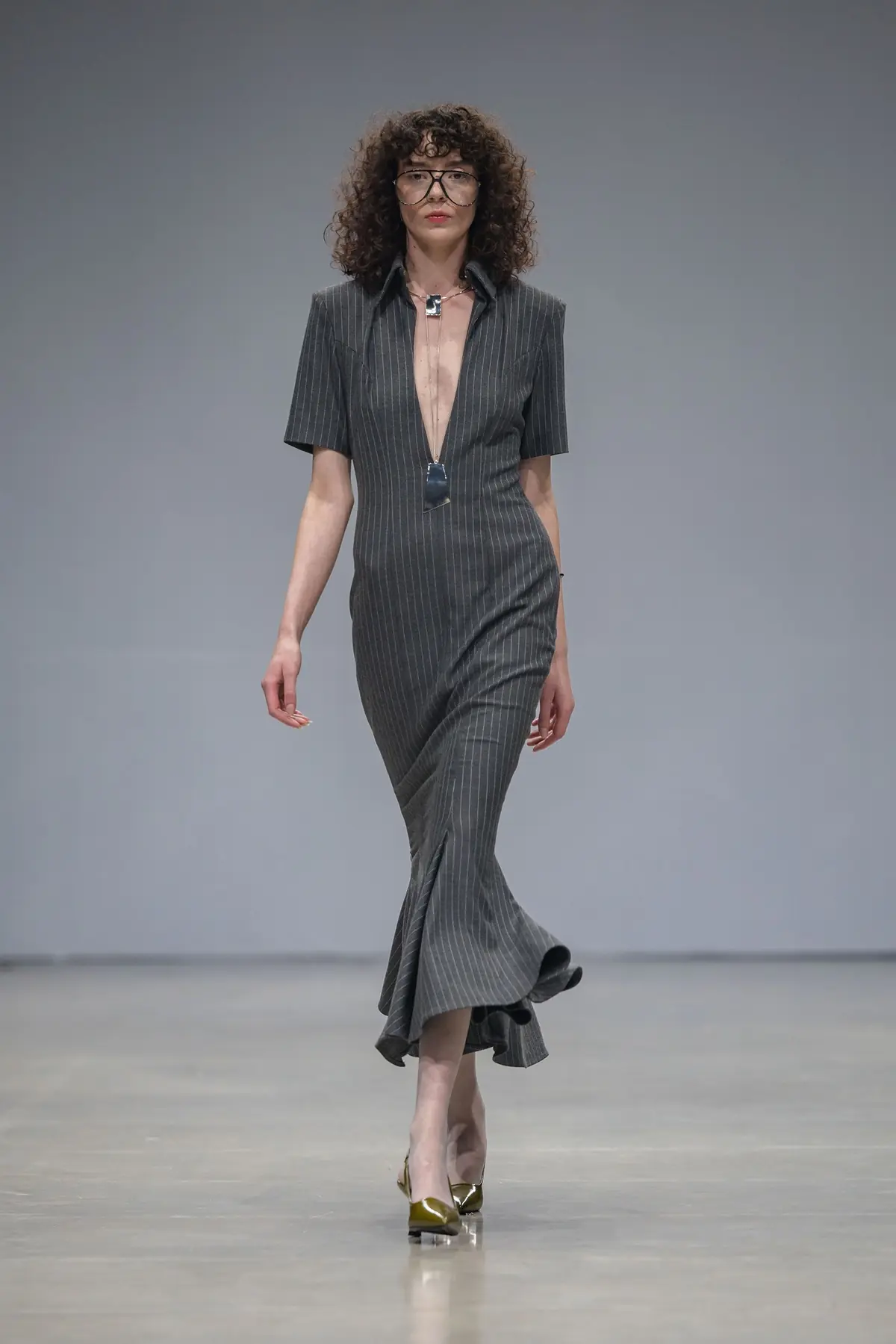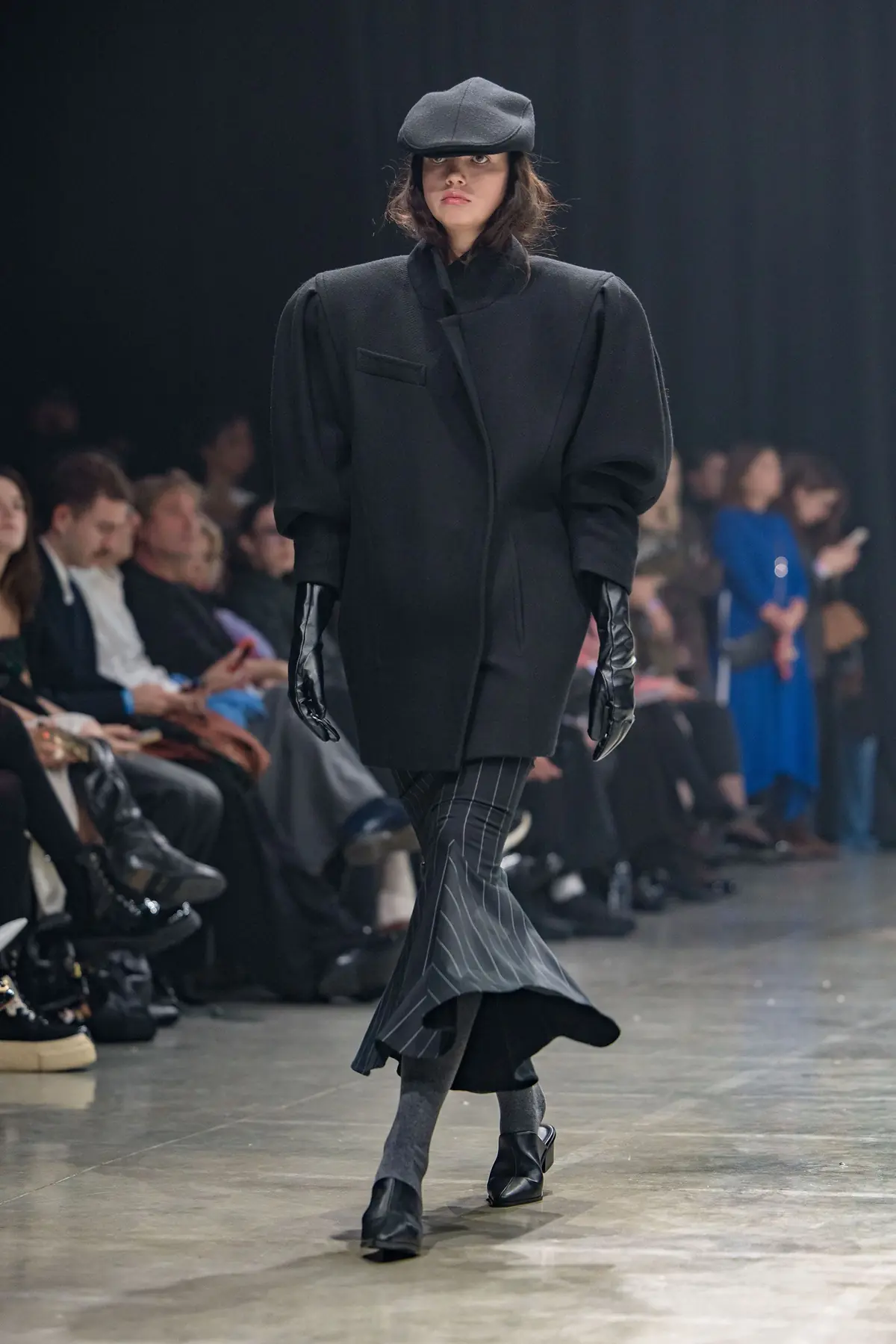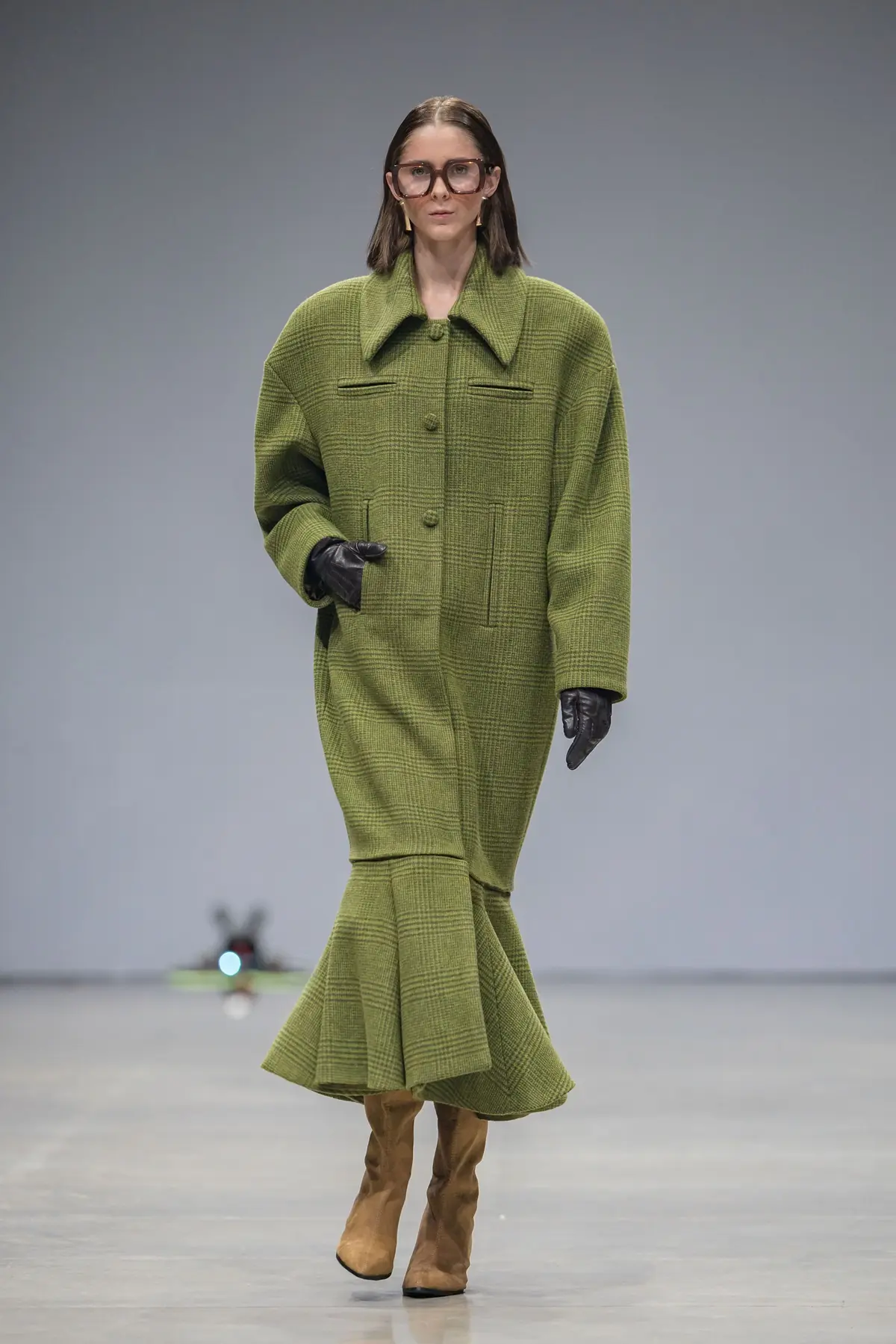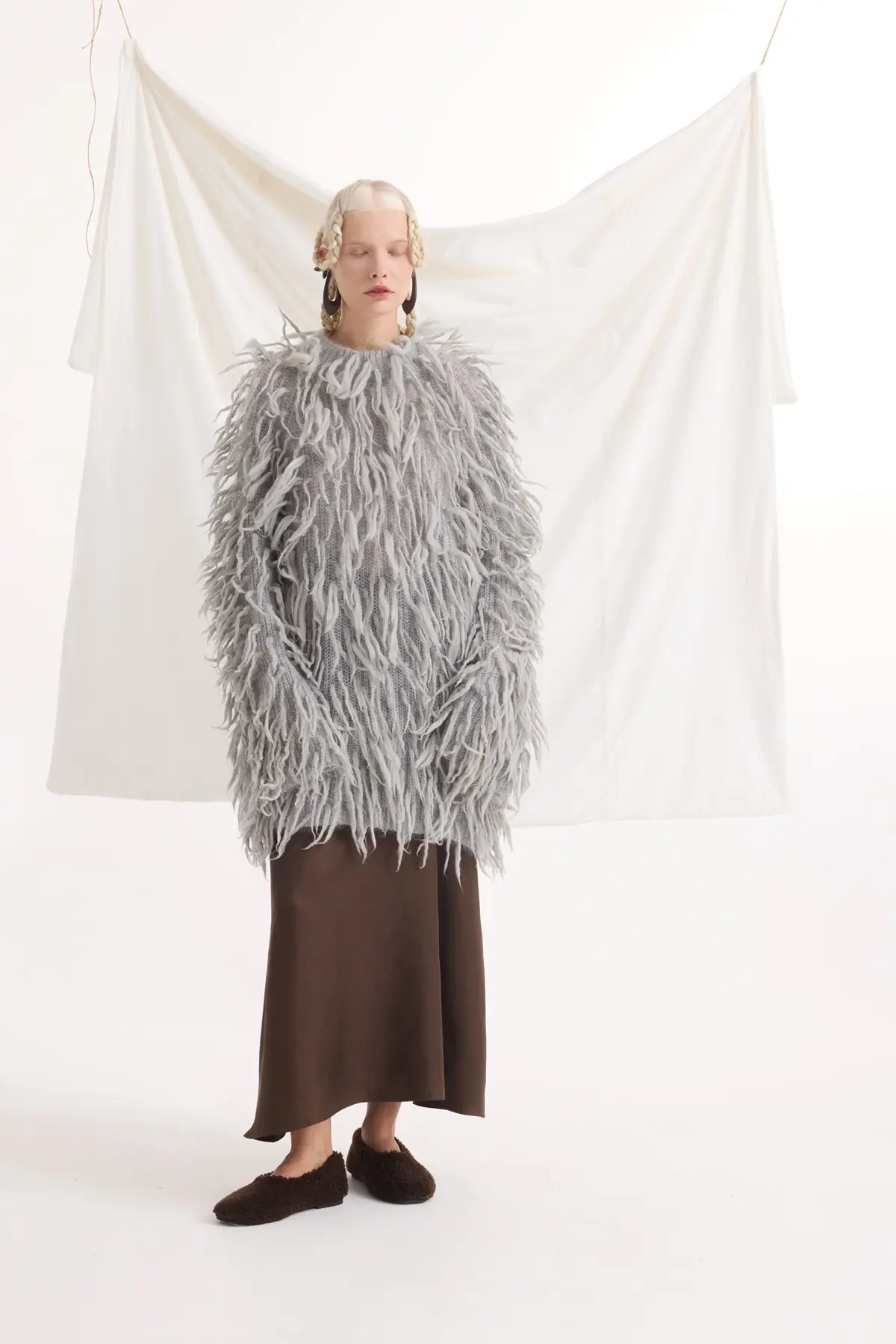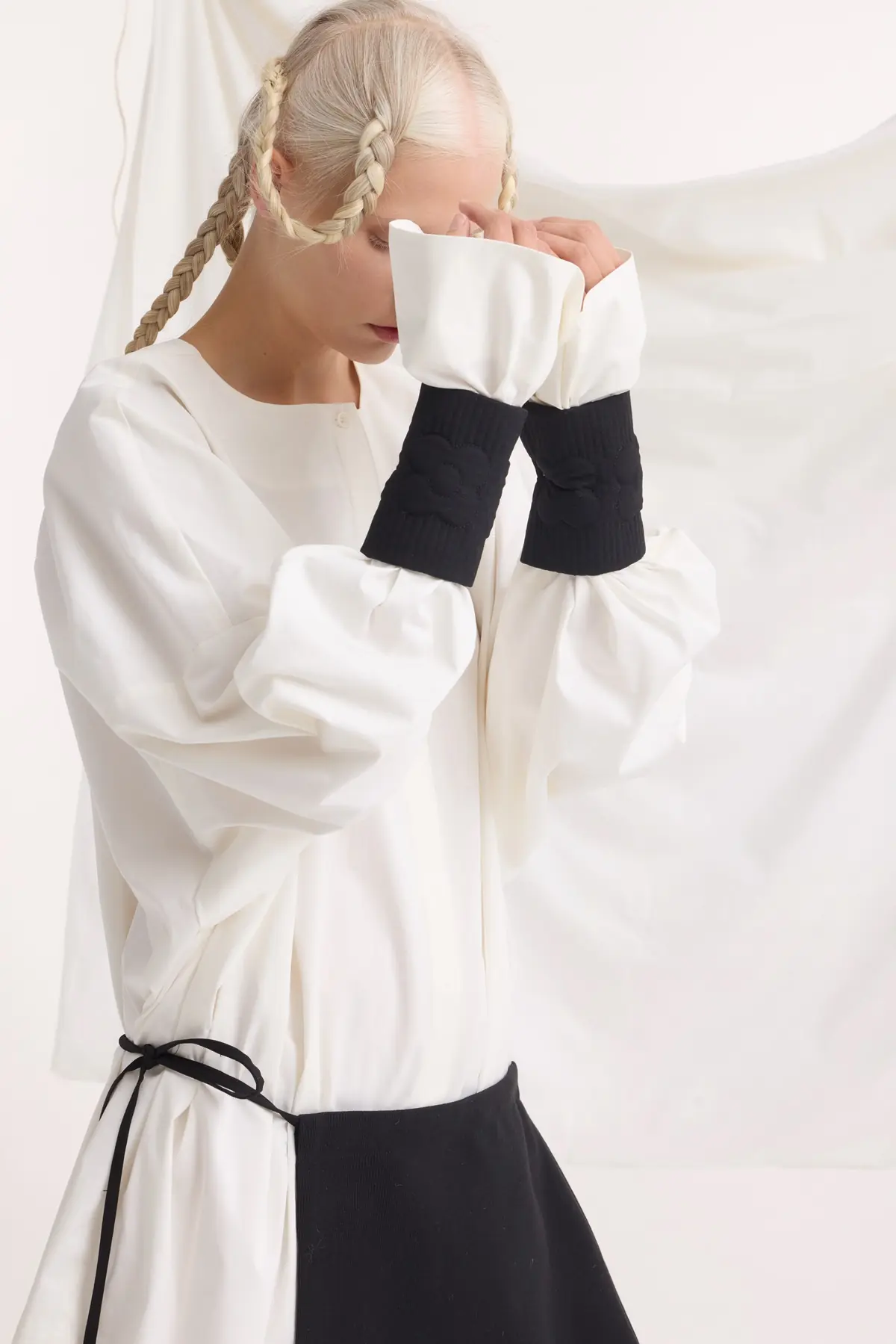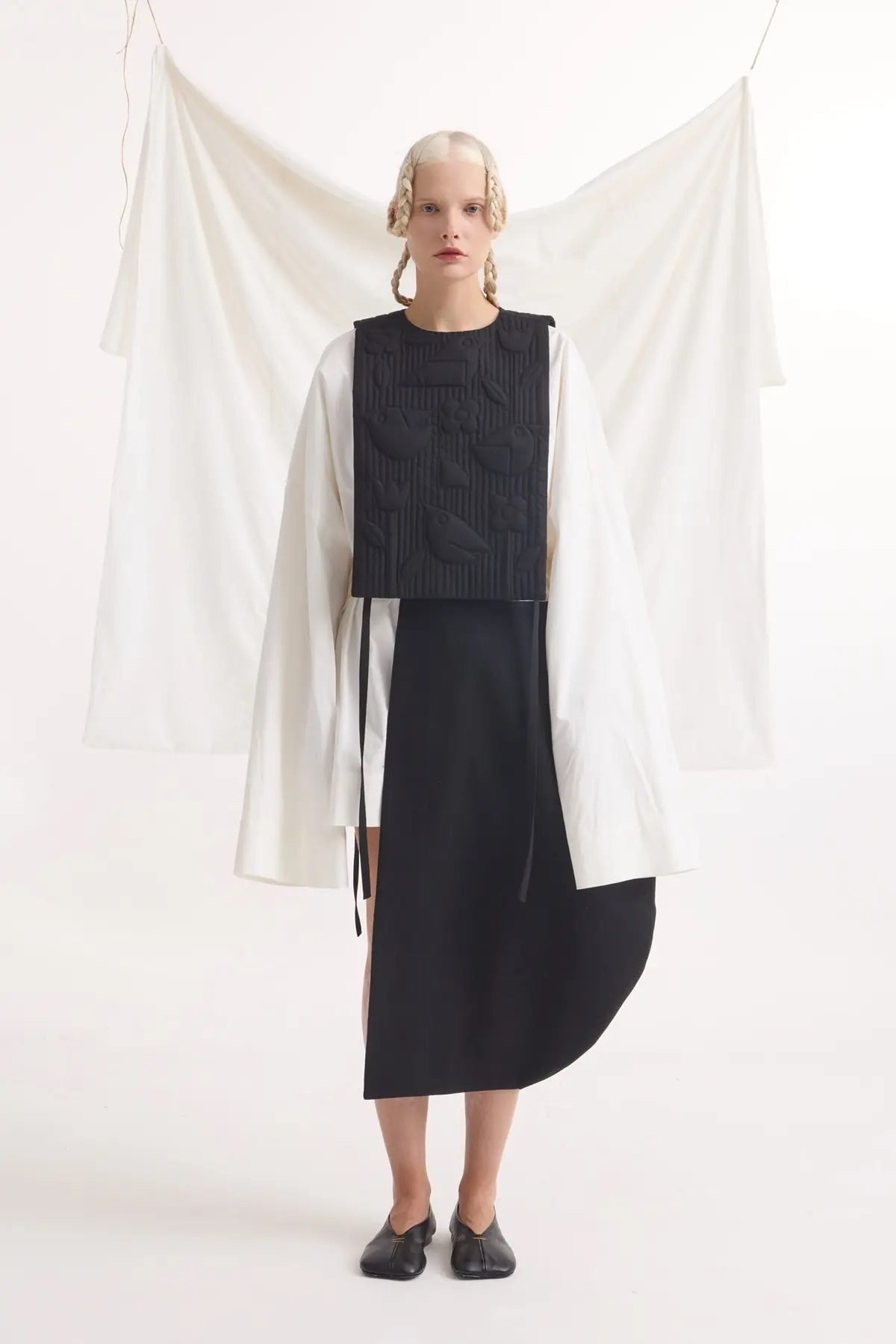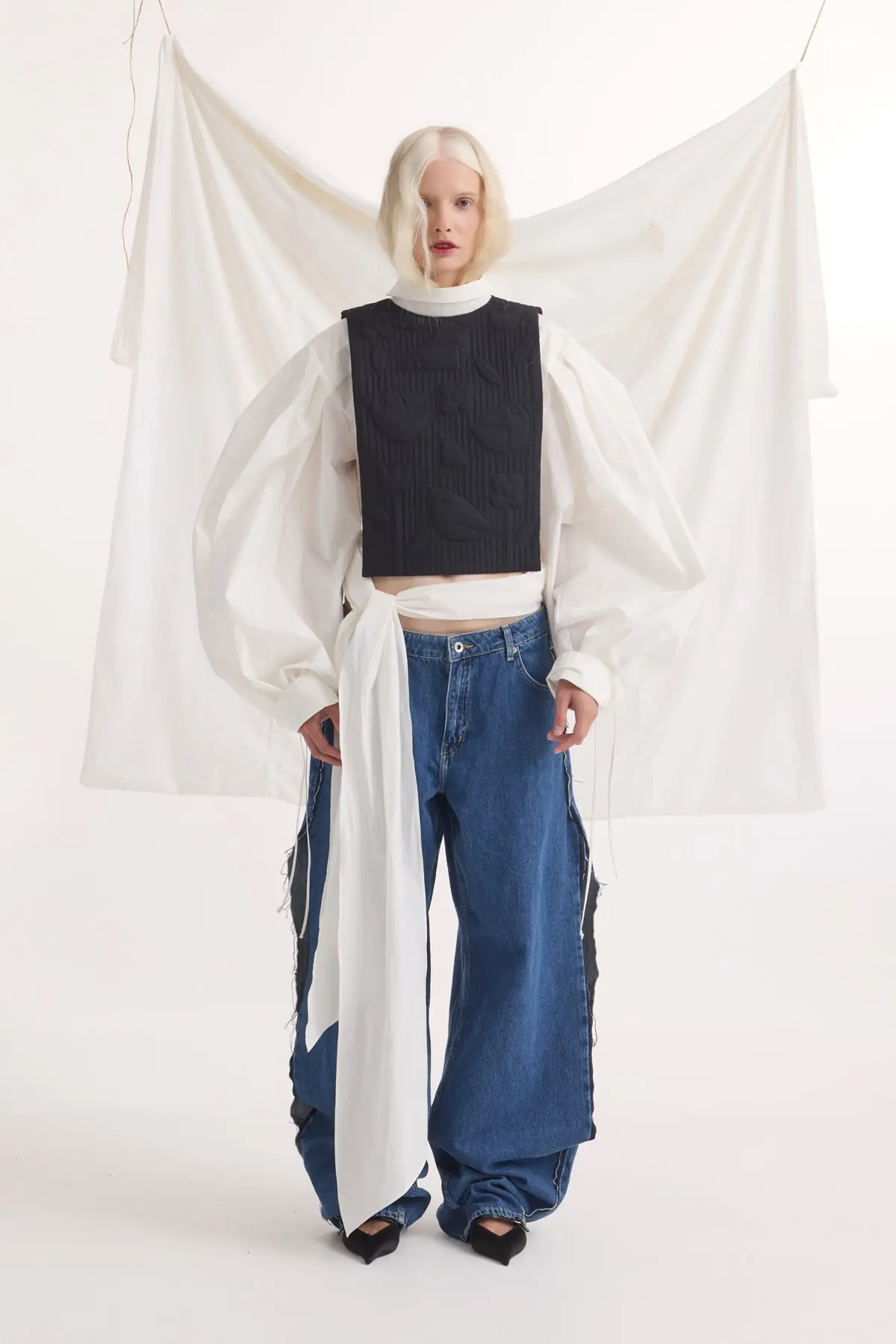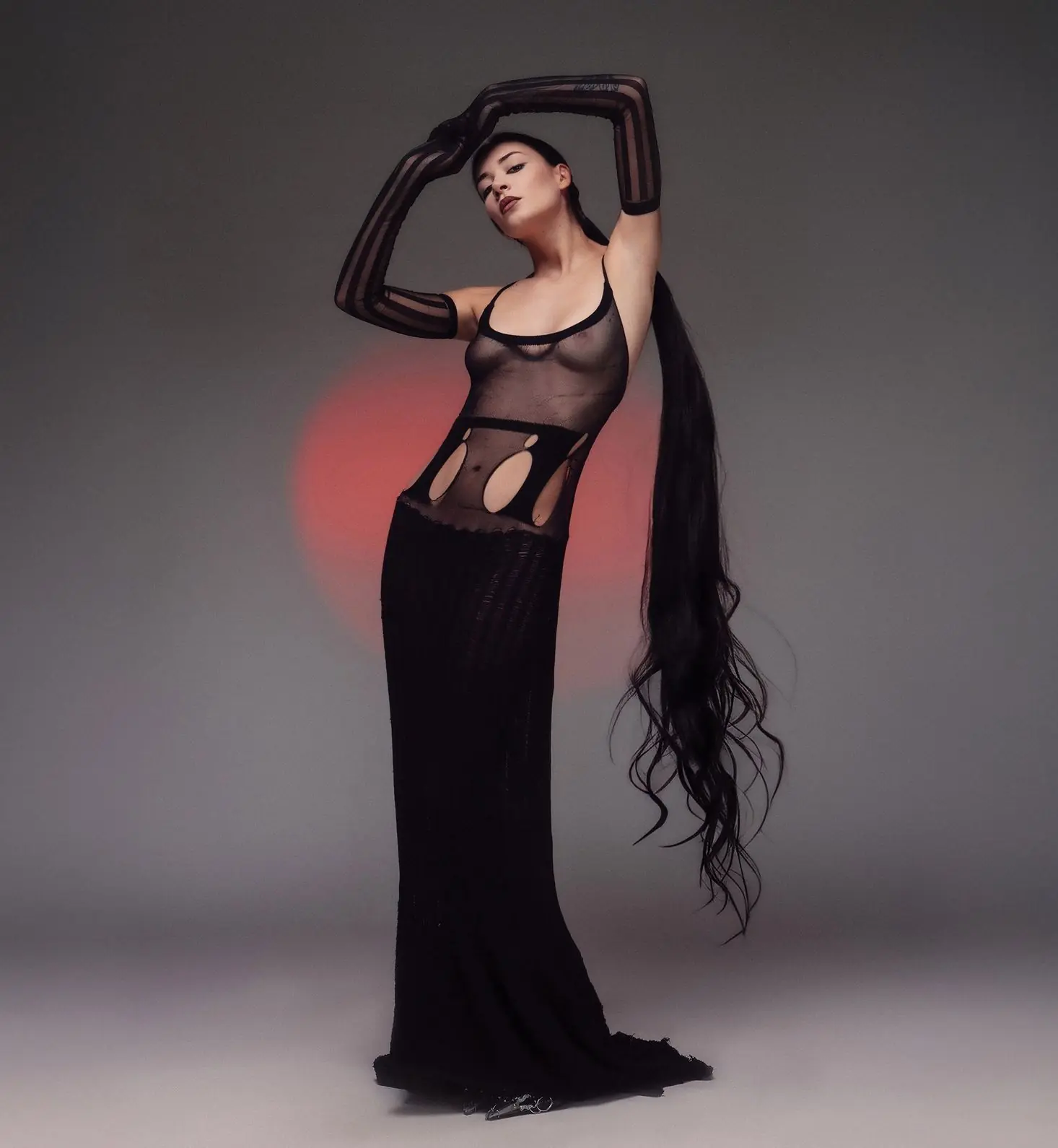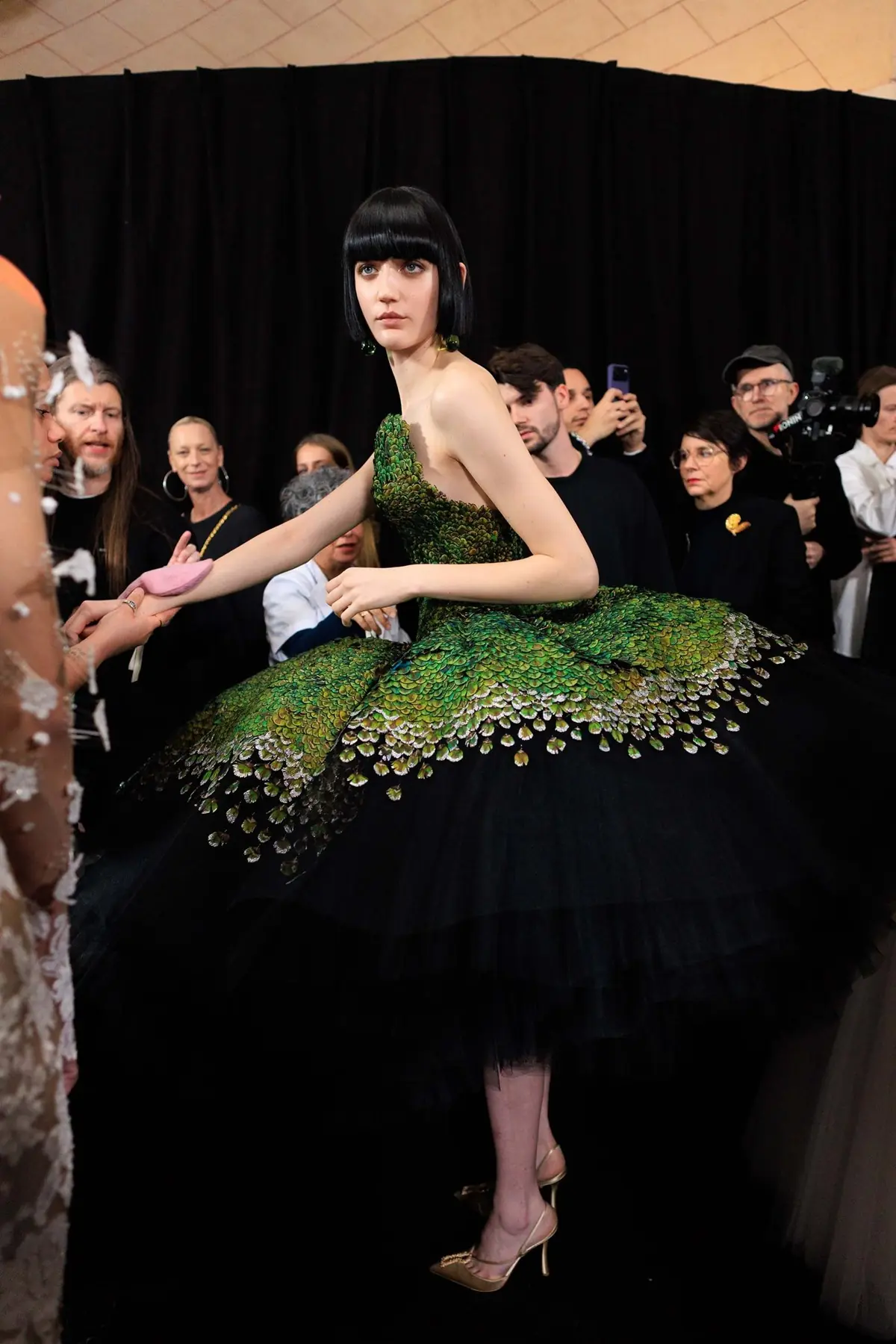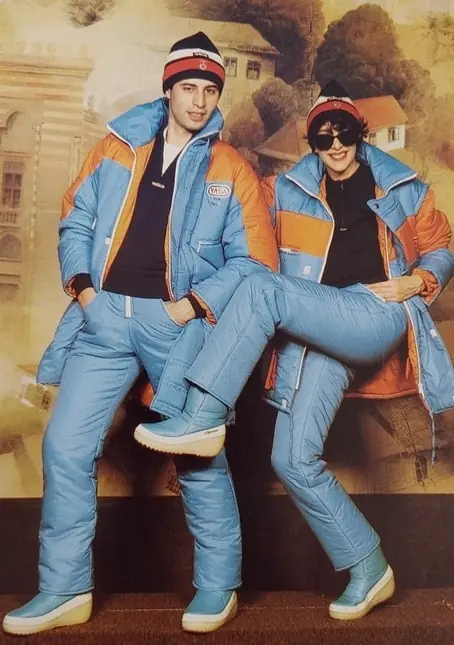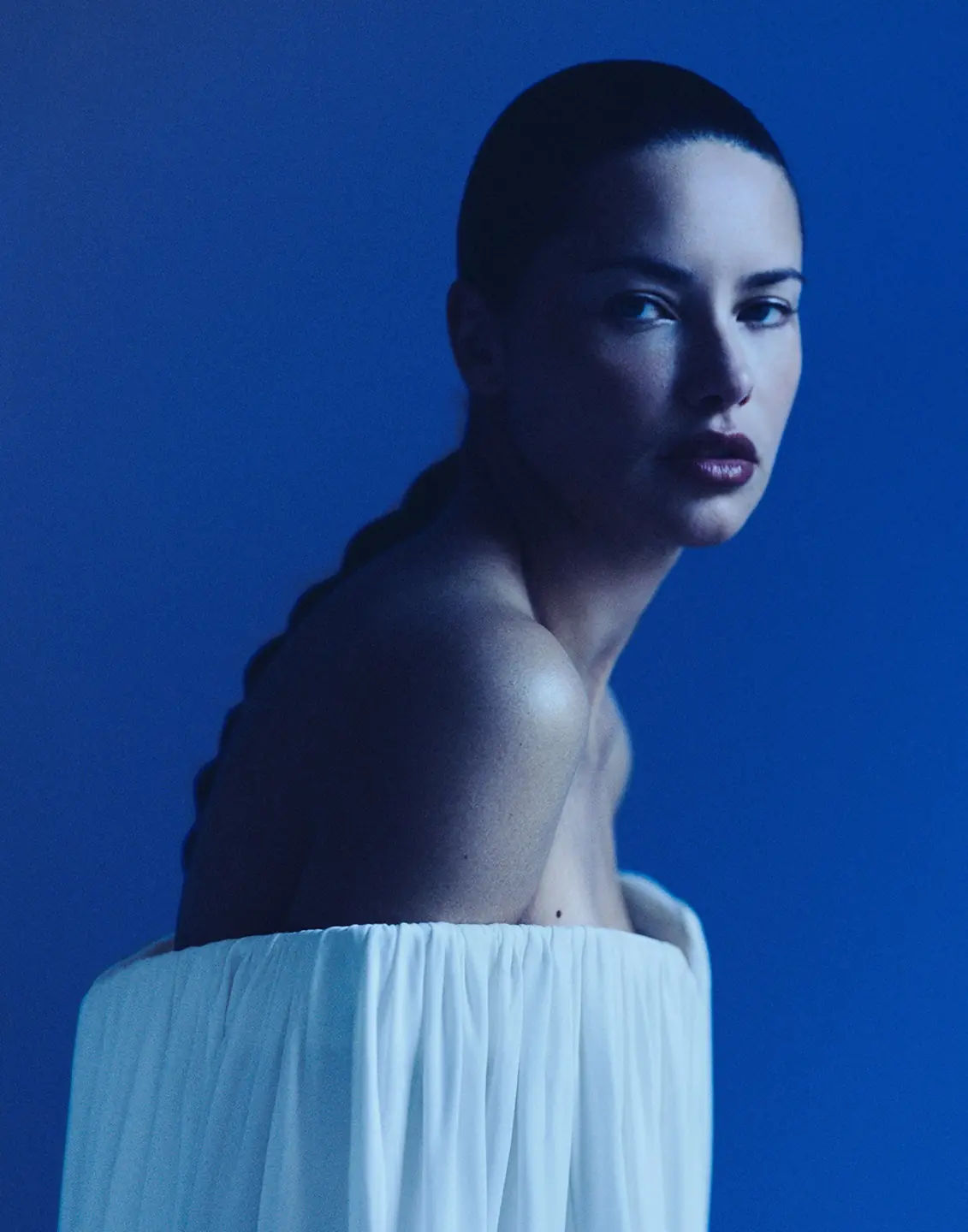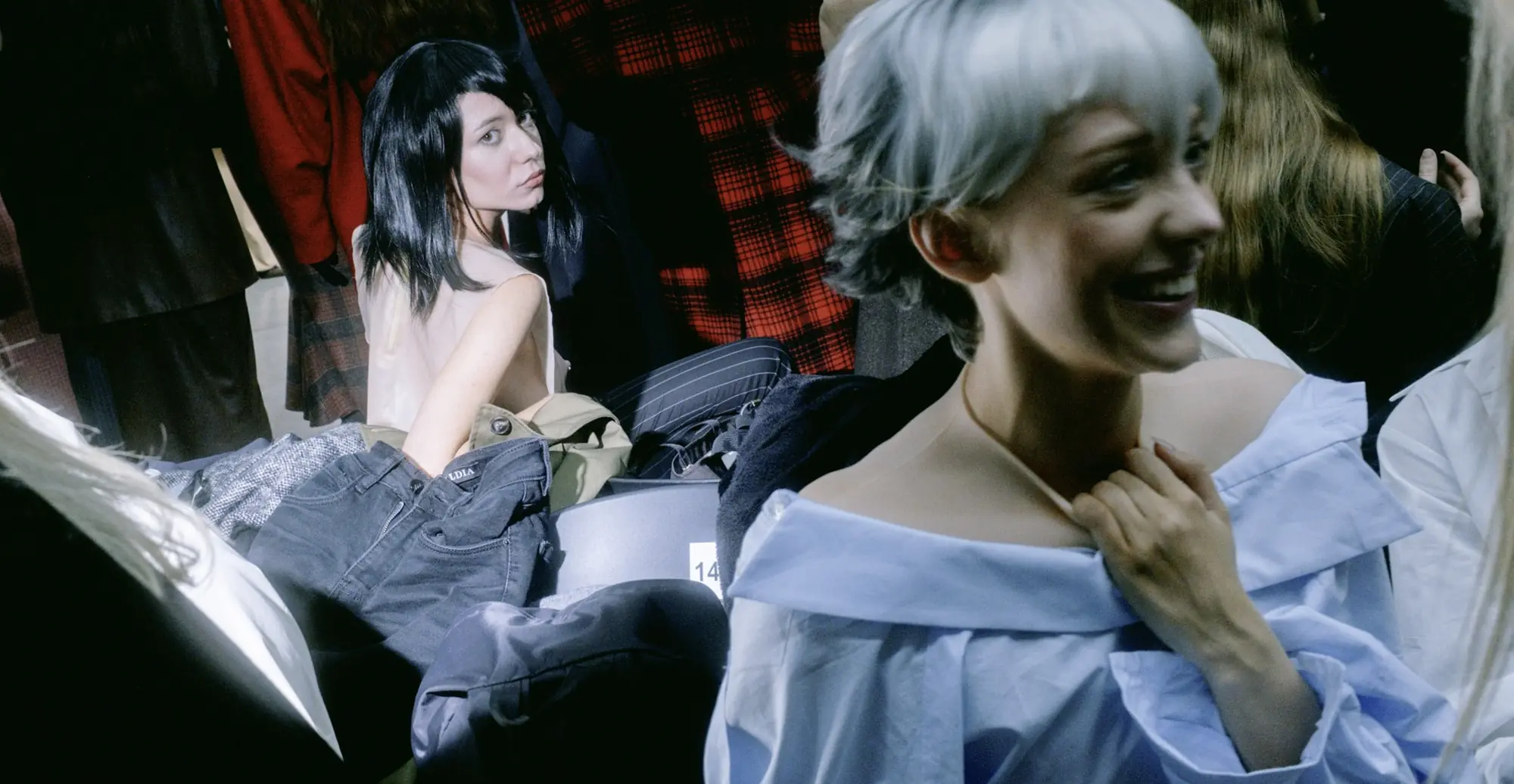
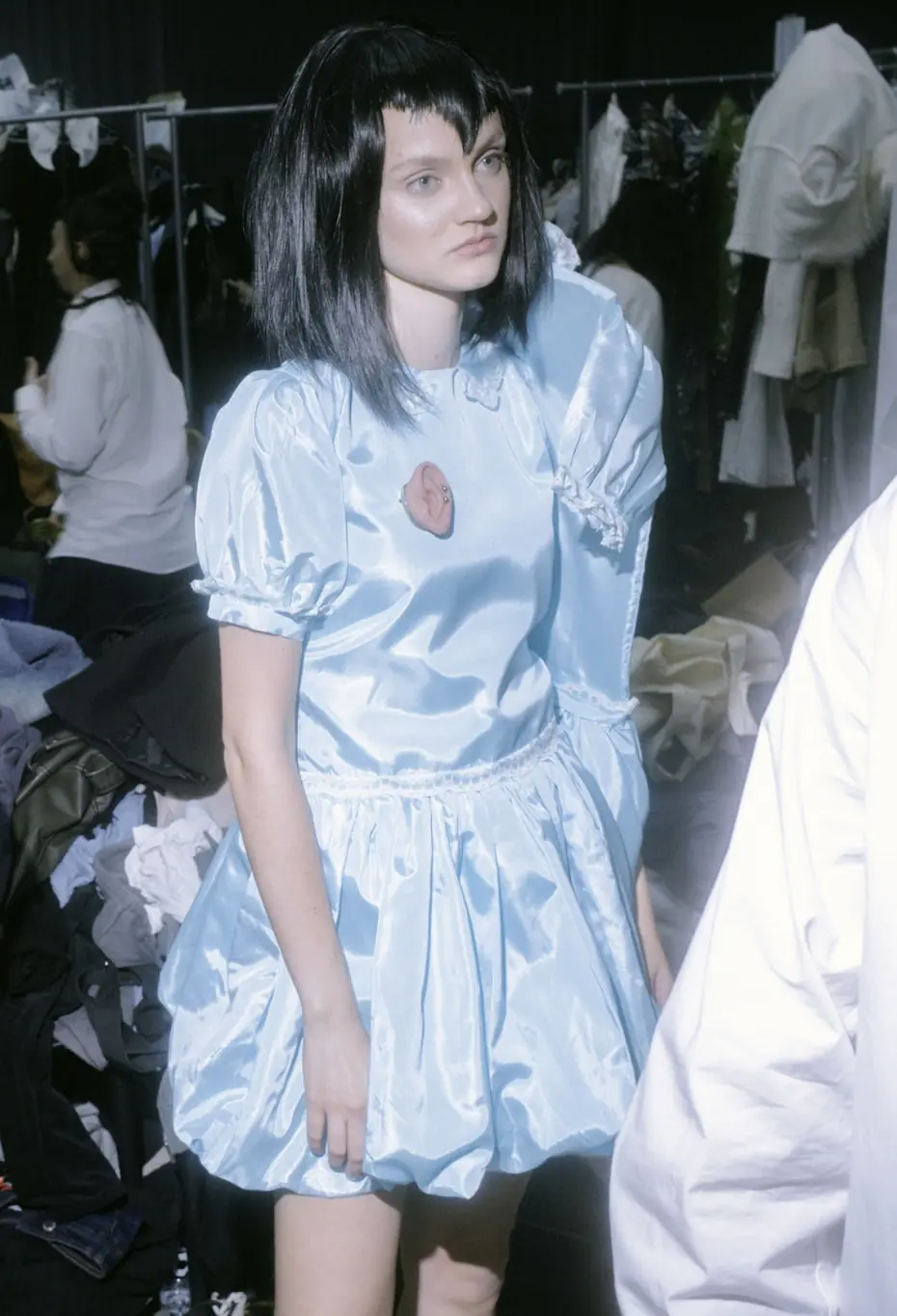
Arriving in rainy, gloomy, and rather chilly Chișinău, I found the city bustling with preparations for the traditional wine festival, which draws thousands of visitors to the streets every first weekend of October. Everyone assured me that autumn had arrived unusually early this year, yet the dreary weather did nothing to deter wine lovers from crowding the city with glass cups hanging around their necks. Considering how popular an event dedicated to the “divine drop” is, it shouldn’t come as much of a surprise – after all, Moldova is home to wines and wineries renowned worldwide, and its grape nectar has fans across the globe. Many of my colleagues saw their stay in Moldova as the perfect opportunity to tempt their taste buds with the country’s finest wines, but the main reason for our visit, however, was fashion.
Although Moldova is a small country in Eastern Europe, the fifth edition of the Moldovan Brands Runway vividly showcased how lively, diverse, and dynamic the Moldovan fashion scene is. Under the theme Reframing, this season invited the audience to reconsider questions of identity, heritage, and the meaning of fashion in a country that is undergoing a period of redefinition in every sense. Over four days at the beginning of October, the event hosted 20 fashion shows, seven presentations, and a series of accompanying events across different parts of the city: underground spaces, designer studios and ateliers, as well as venues of cultural and historical significance. The brand Sannat presented its new V collection at the Luceafărul Theater, intertwining the fashion show with the play, inspired by Eugène Ionesco and his theater of the absurd. L. Storojuc Altezza unveiled its Fall/Winter 2025/26 collection, inspired by fencing choreography, in the space of the former Republican Stadium, which will soon become the new U.S. Embassy. Meanwhile, Barbara Collection transported us to the majestic Green Theater, which looked like a perfect stage for a collection featuring an impressive number of looks. For those of us visiting Chișinău for the first time, it was a fantastic way to discover both the fashion scene and the city itself.

Barbara Collection, @etalpmet

Sannat/Teatrul „Luceafărul” @etalpmet
Below, I spotlight five fashion brands that showcased their collections at Moldovan Brands Runway and left a lasting impression:
Julia Allert
Julia Allert was one of those brands that immediately caught my attention. Although I encounter countless brands on a weekly basis, especially when traveling, an instant connection with a brand’s aesthetic and sentiment doesn’t happen often. Julia presented her new collection, Timeless Frames, at Mediacor, transforming the runway into a chessboard. Before the models began their walk, I had the chance to study each total look on the models, who stood calmly, awaiting the show to start. Like an art lover standing before exhibits in a gallery, I examined every detail. Delicate floral motifs and playful textures wove through the collection, creating a captivating play of contrasts against the structured silhouettes. Though predominantly in black and white – a combination evoking the chessboard motif – each look was perfectly completed with details such as soft, voluminous pillow bags, statement shoes, floral-tipped “ties,” collars, and belts.
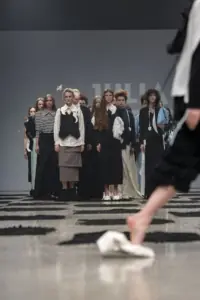
Julia Allert, Photo: Egor Tetiushev
Julia Allert is one of the most renowned Moldovan fashion brands. The eponymous designer launched it in 2005, and over the years, her impeccable tailoring, subtle fusion of trends with timeless elegance, and details that give each look an unexpected twist have earned Julia global recognition. In addition to the flagship boutique in Chișinău, Julia Allert’s creations are also available in boutiques in London, New York, and Los Angeles.
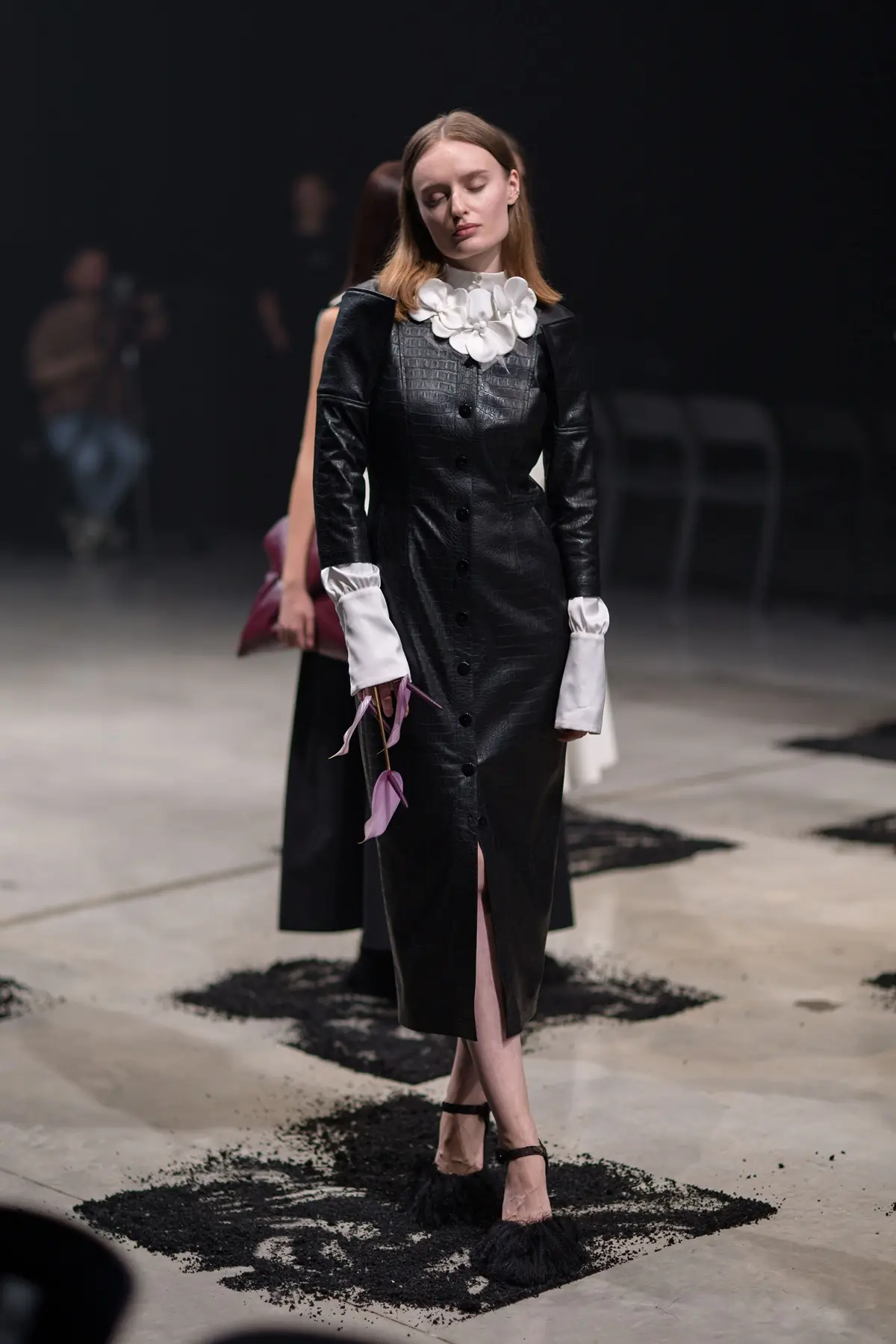
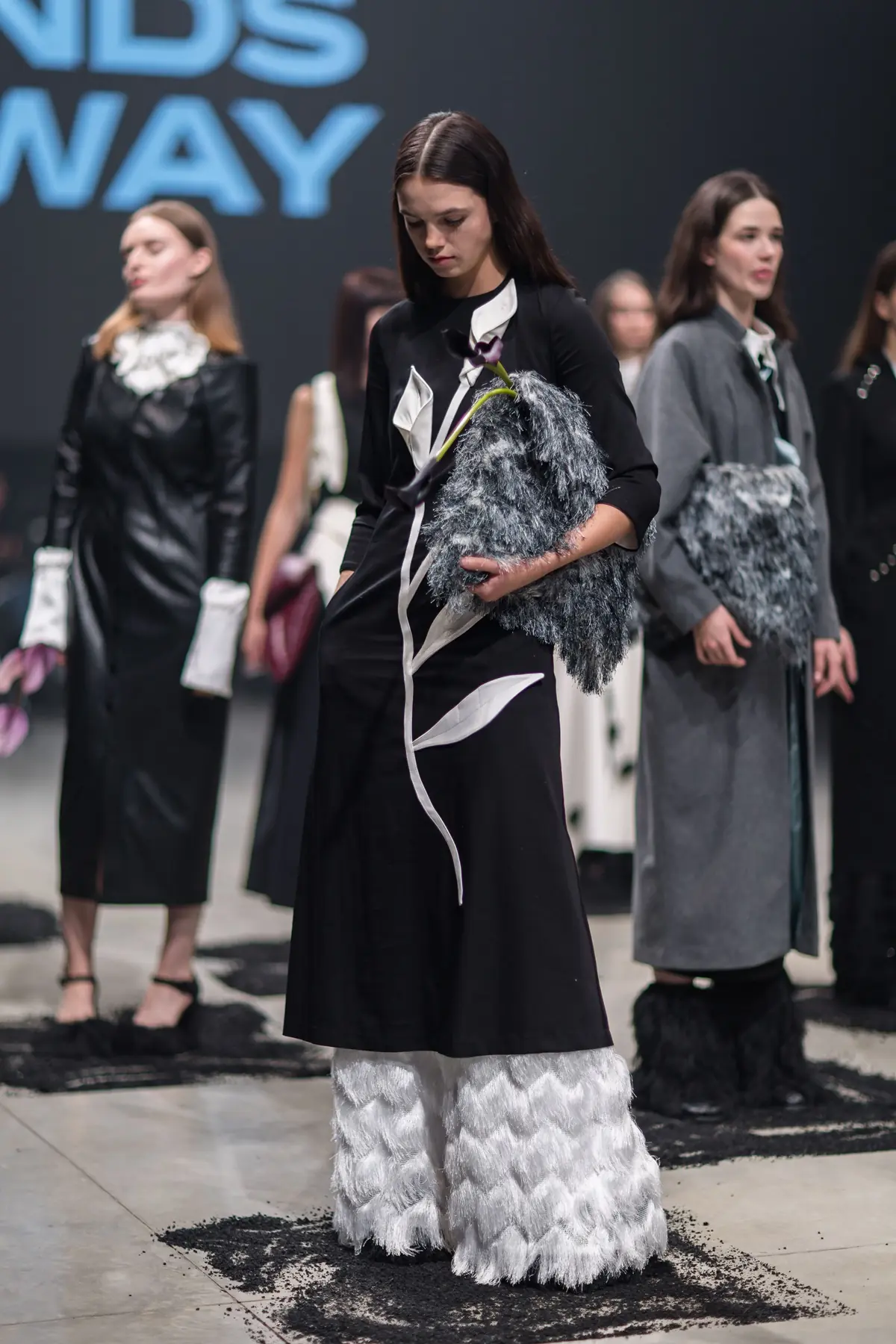
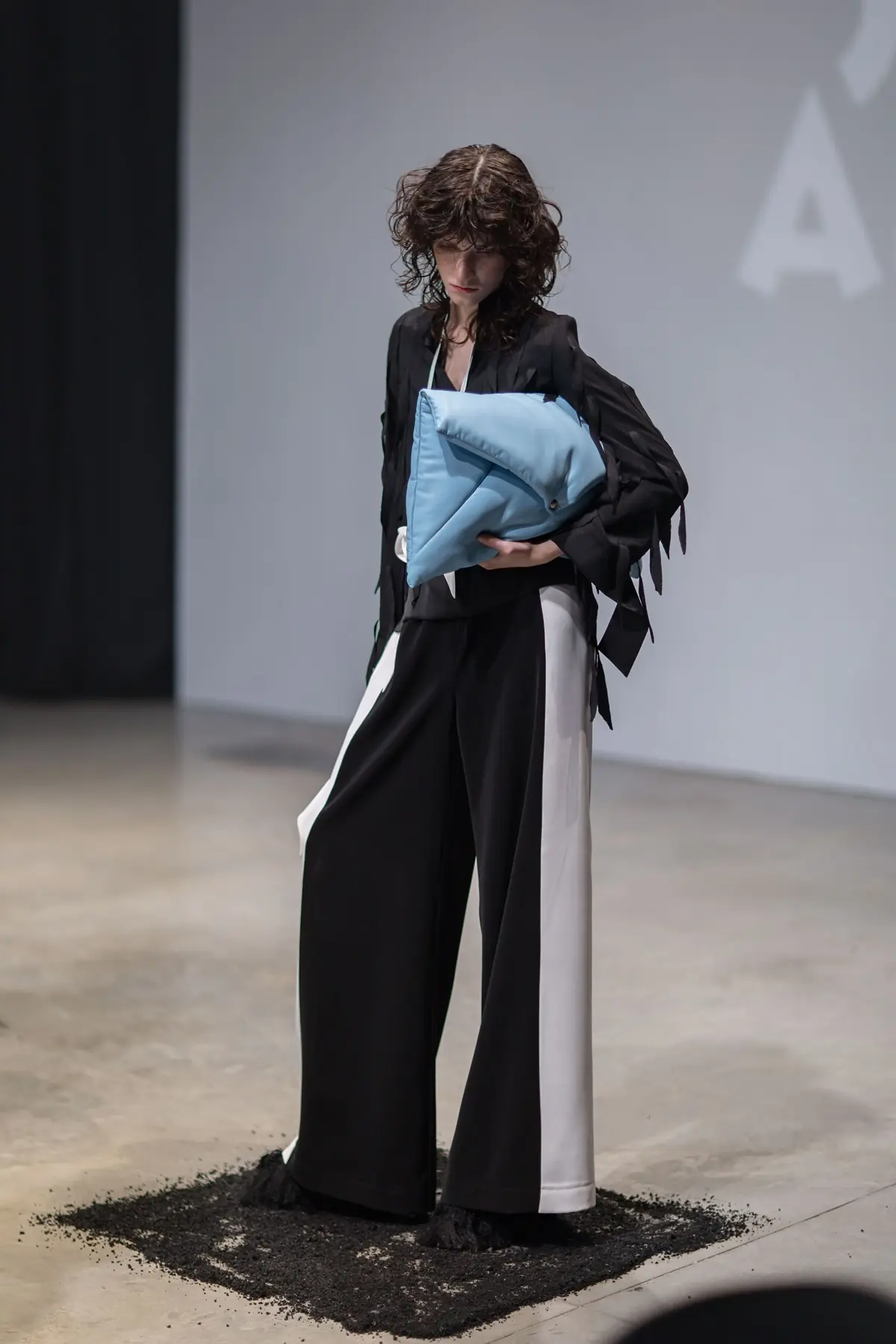
OK Kino
I first encountered the Moldovan brand OK Kino earlier this year in Bucharest, where Darya Golneva and Denis Caunov presented their Fall 2025 collection. Even a first glance at the runway – where models showcased minimalist aesthetics alongside innovative construction techniques – was enough to reveal how exceptional OK Kino is as a brand. Yet, visiting their atelier in Chișinău only deepened that admiration. In the intimate atmosphere of their studio, Darya guided us through the OK Kino philosophy and shared the story behind their latest Spring 2026 collection, simply titled Collection 07.
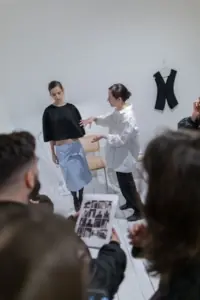
OK Kino, Photo: Egor Tetiushev
Collection 07 is a natural continuation of their work, marked by a search for something new within what we consider familiar. Darya explains how one of the pieces was inspired by the way she used to carry fruit and nuts in her T-shirt as a child, gathered from nature. It was from this improvised childhood “bag” – something we’ve all, at least once, used when we wanted to hold onto something we happened to find – that the design emerged. Thanks to buttons and additional tailoring elements, it transforms into a multifunctional piece that can be worn in multiple ways. Childhood, nostalgia, and the place where they live and create are inseparable elements of their work.
In Moldova, many rural houses are still coated in white lime, and when dark clothing touches the walls, pale traces remain. This subtle residue became the central tone of the collection, with white as the dominant color, the designers revealed. Alongside white, they introduced hues drawn from the everyday life of these spaces: dusty beige and pale blue, evoking clay and lime whitened with a bluish tint. Collection 07 reflects our attention to small imprints of place and time — fragments that stay with us and quietly shape the work we do, the designers explained. OK Kino is one of those brands whose work makes it clear that minimalism does not mean simplicity. What appears minimalist can be profoundly complex, layered, and deliberate, with craftsmanship and near-surgical precision that are simply mesmerizing.
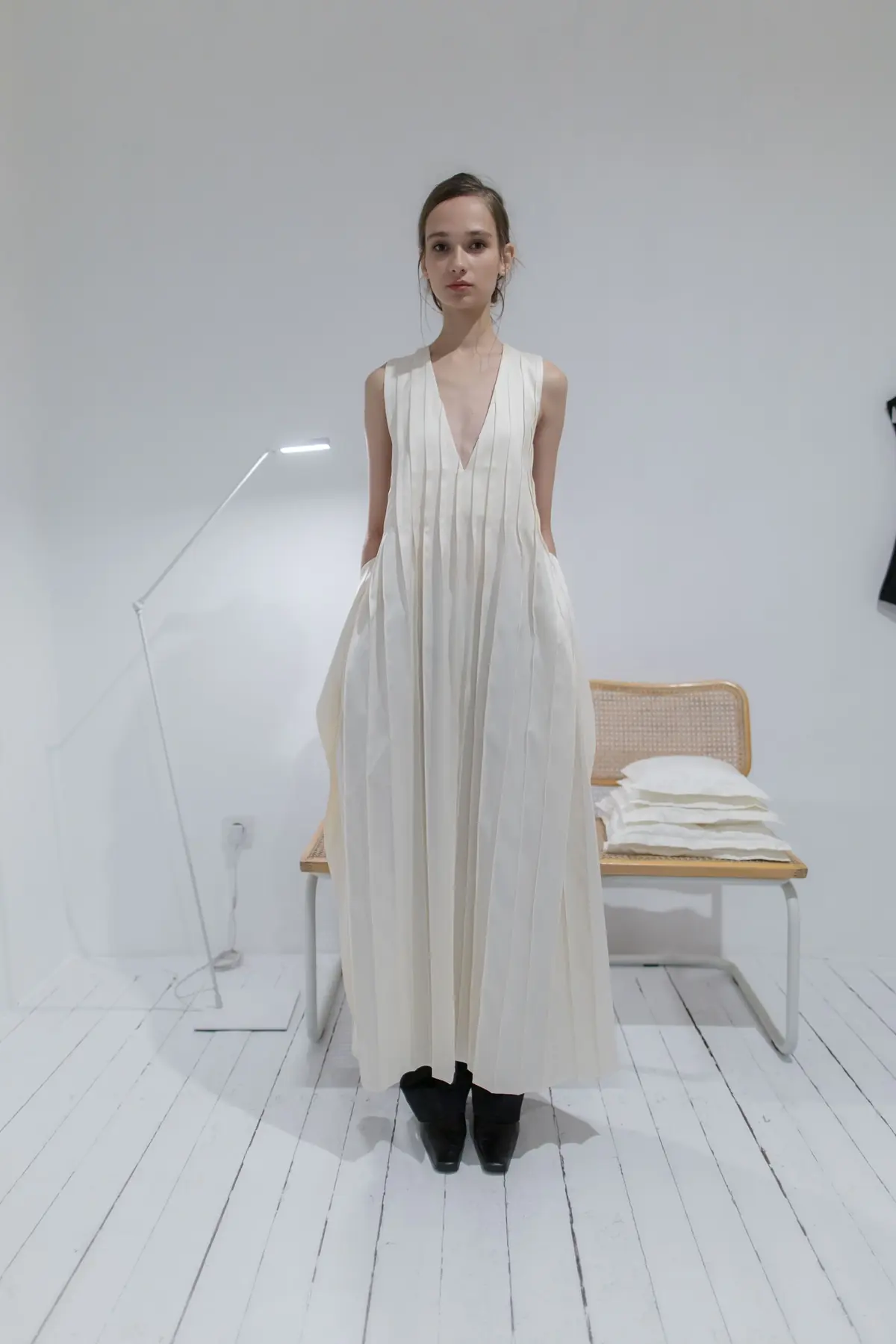
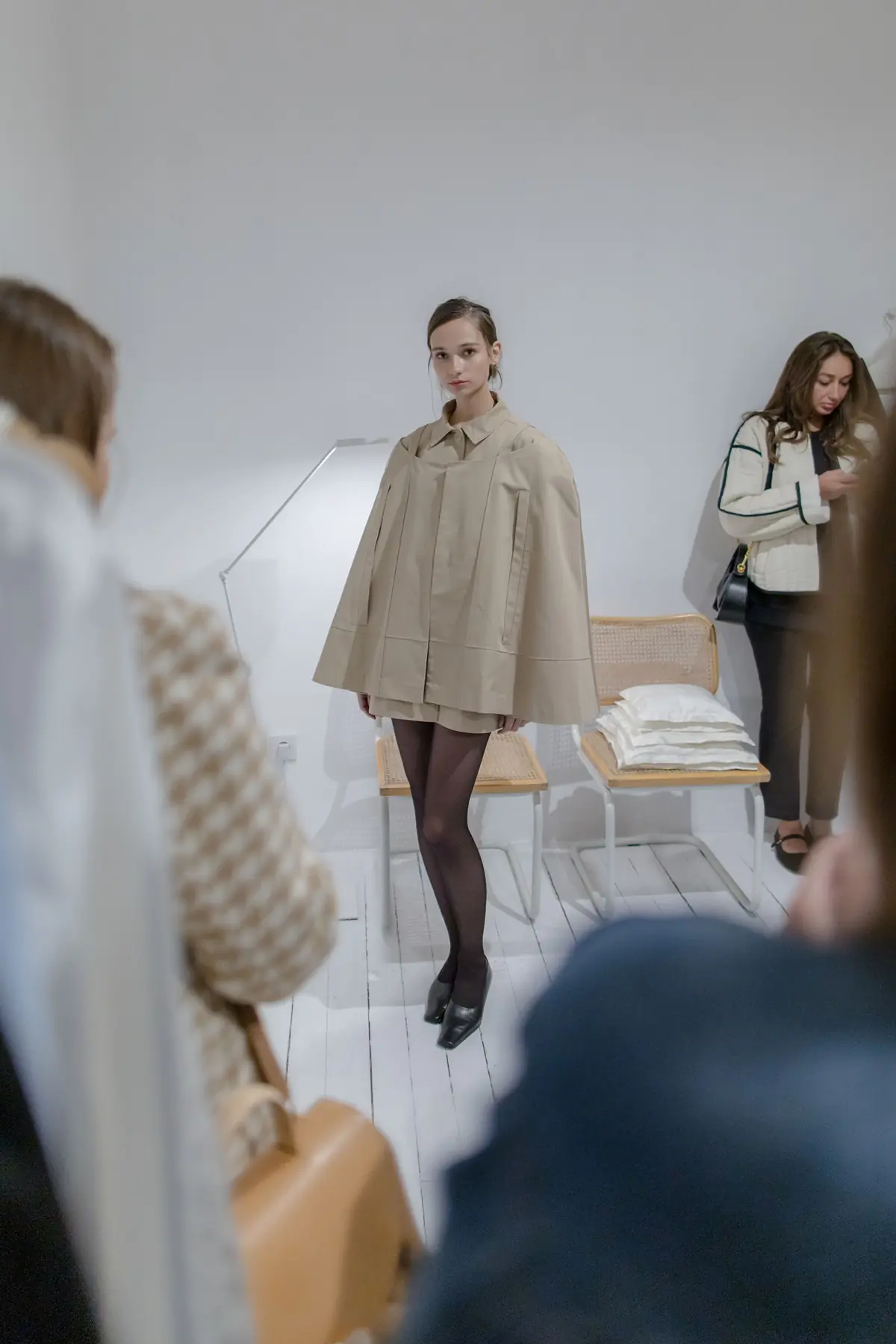
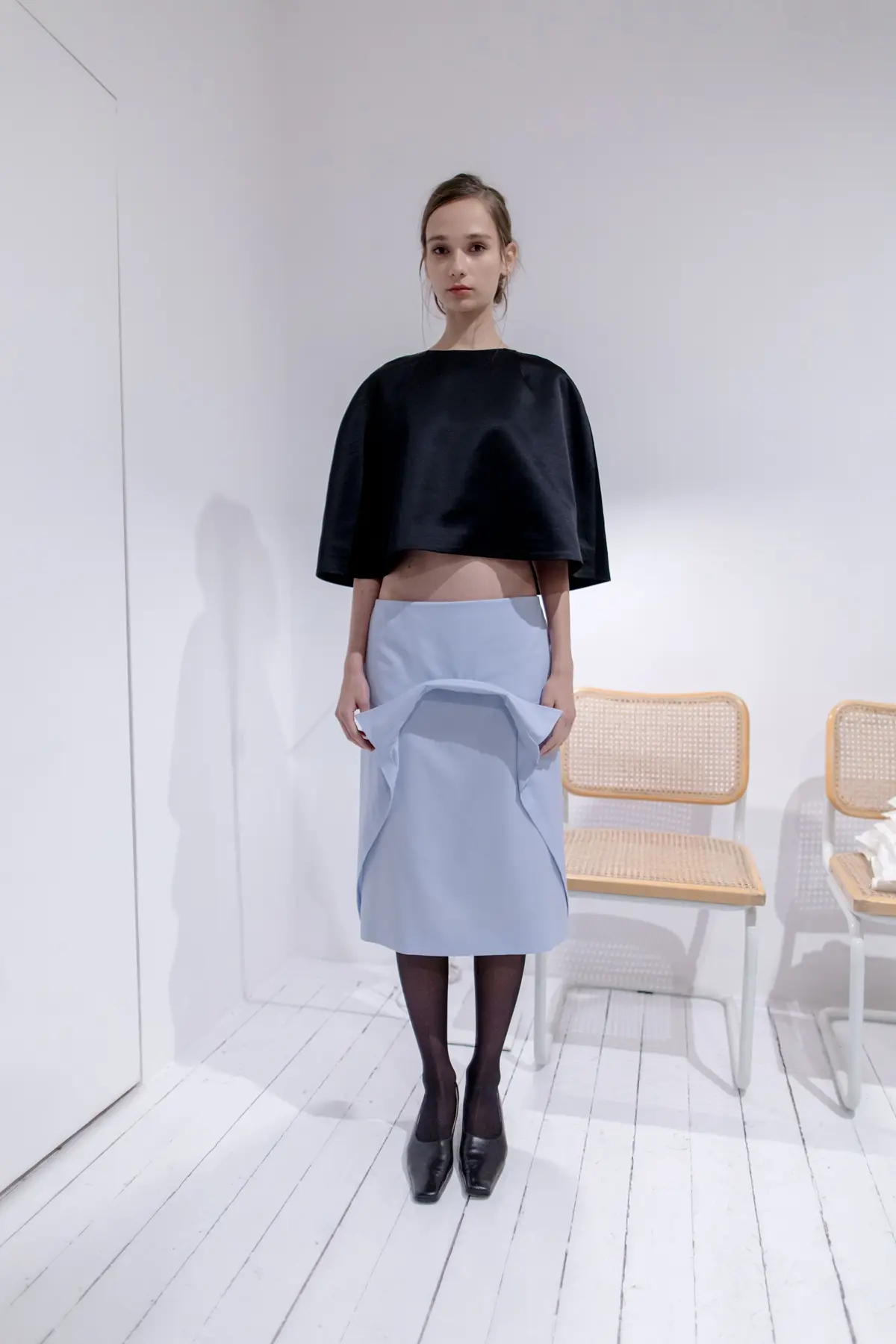
God Era
The Georgian brand God Era, created by designer and artist Nino Goderidze, is one of those labels that reminds you of the power fashion holds in addressing important social issues. Before witnessing her debut in Moldova, the designer from Tbilisi introduced me to the complex social and political climate in her country – protests, upcoming elections, and fears of repression, particularly against the LGBTQ community. Speaking with her, and later watching the show itself, made me realize just how little I knew about the situation currently unfolding in Georgia. God Era resonated in Chișinău as a voice carrying a message that everyone needs to hear.
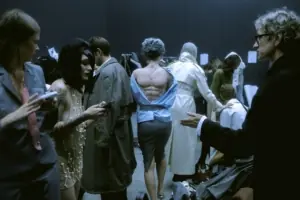
@etalpmet
Her futuristic silhouettes, crafted from experimental fabrics and biodegradable vegan leather, merged activism with art, transforming fashion into a symbol of both resistance and hope. By exploring the question of what would happen if a queer person were elected president, God Era offered not only creatively thoughtful and imaginative fashion, but also a window into a world we did not know well enough.
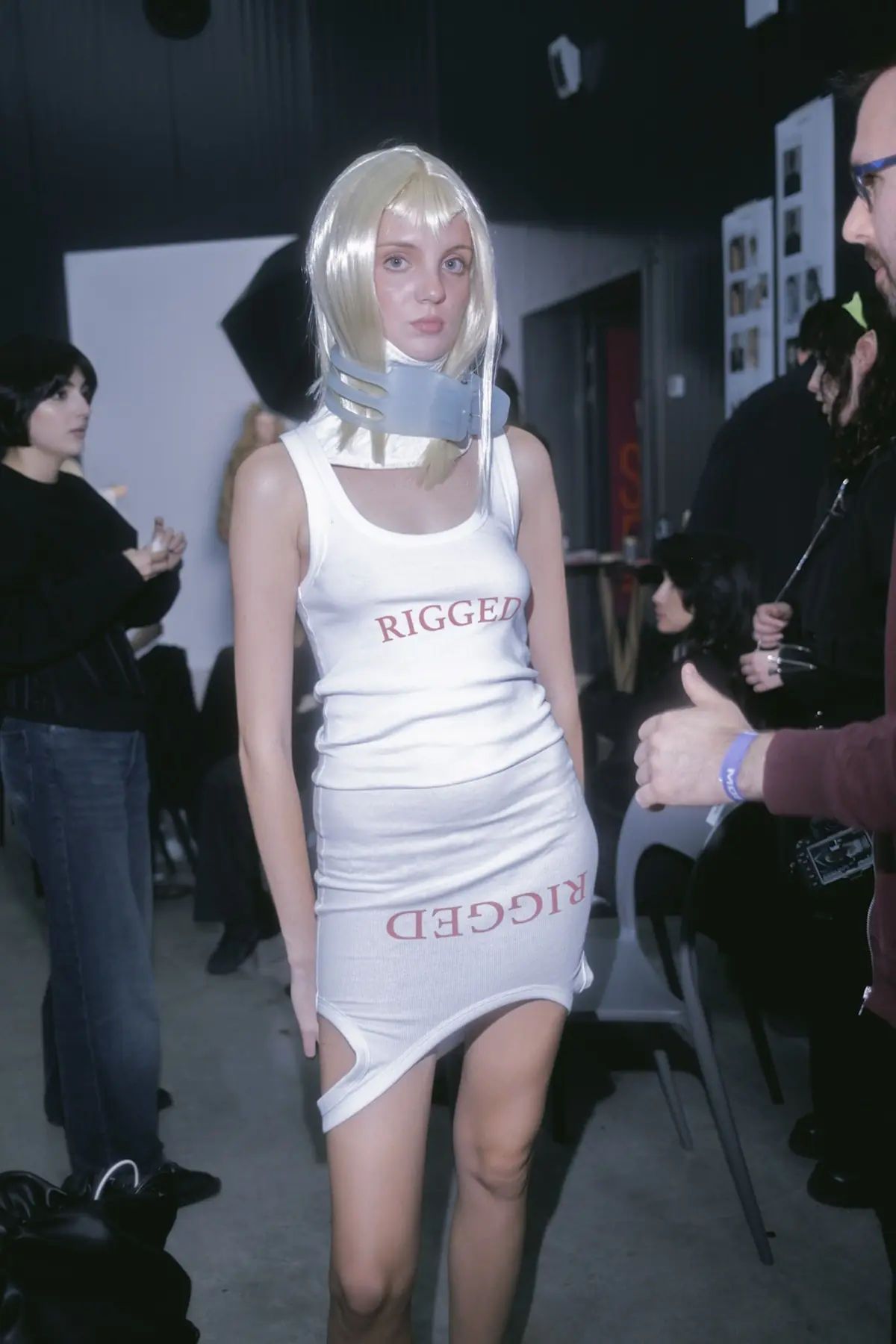
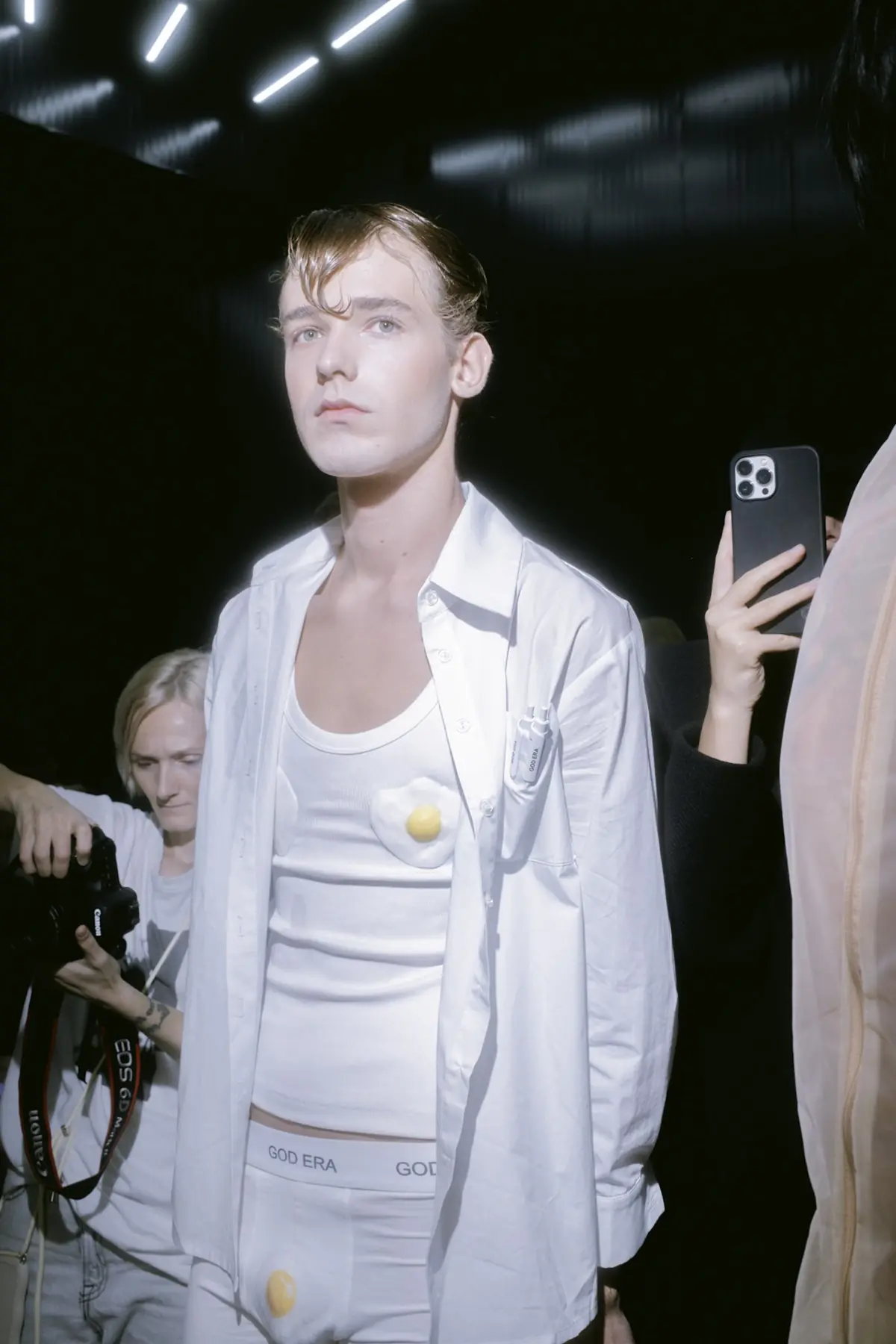
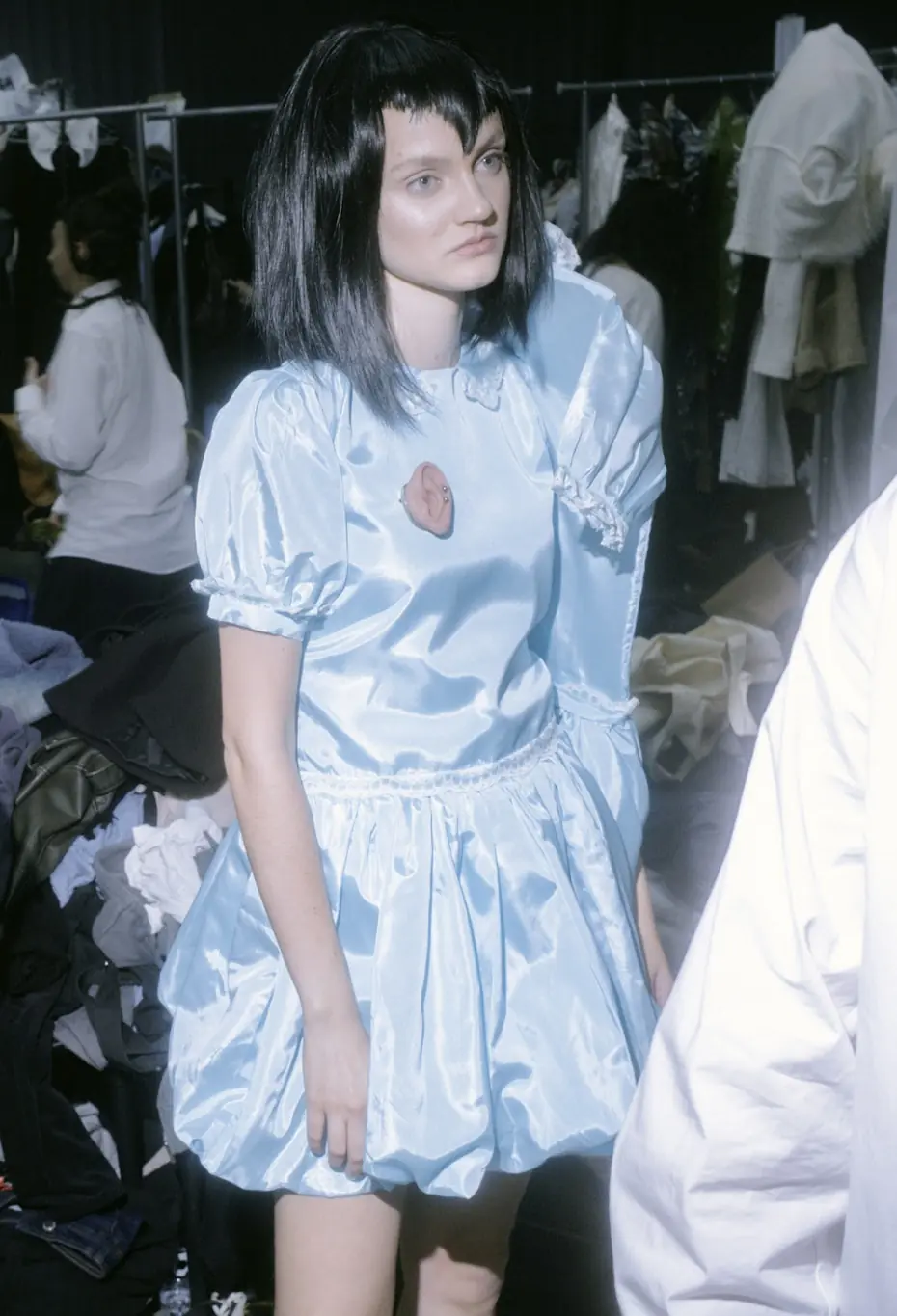
Patru
Patru is the first brand in Moldova to operate on a full upcycling principle – each piece is made from existing materials, ranging from the archives of the Holy Chic resale studio and stock from the DOFAMIN concept store to textiles preserved from previous generations. The brand was presented by Evghenia Gruzdeva, founder of DOFAMIN, the country’s first fashion and lifestyle concept store, and Natalia Mitereva, the brand’s creative director. Every piece is one-of-one, assembled by local artisans who work with traditional embroidery, patchwork, and tailoring techniques adapted for modern forms, Evghenia and Natalia explain. Each garment carries a product passport, documenting its origin, the materials’ previous life, and the artisan’s name – ensuring complete transparency and turning clothing into a form of cultural documentation. The brand will release monthly themed drops in strictly limited quantities, available exclusively at the DOFAMIN Concept Space. We preserve memory, craft, and material, translating them into the language of a new Moldovan aesthetic, Natalia stated.
Photo: Courtesy of Patru
Caravasili
The perfectly tailored green coat, which in a slightly unexpected manner ends with a ruffle, was a piece that immediately caught my eye – and lives rent-free in my memory ever since. Watching it move down the runway, I instantly pictured all my friends who I knew would adore it. But for me in the audience, this coat was much more than a coat – it was a signal that I was watching a brand that truly understands tailoring. And I wasn’t wrong: Caravasili is the result of a long family tradition, woven with the knowledge and passion of three generations. What also makes it exceptional is the brand’s commitment to sustainable practices – each piece is made to order, with no stock and no waste.
We believe in responsible fashion – one that honors the craftsmanship behind every creation and ensures each piece stands the test of time. That’s why we embrace made-to-measure, work exclusively with natural materials designed for longevity, and produce only ultra-limited editions or unique pieces. In our vision, fashion should be personal, almost intimate, adding true value to the wearer. This is how fashion becomes truly responsible, the brand explains. Thanks to its slow fashion philosophy, skills passed down through generations, and an essence of timelessness, Caravasili is the perfect brand for anyone looking to build a wardrobe rooted in quality that resists the whims of fleeting trends.
